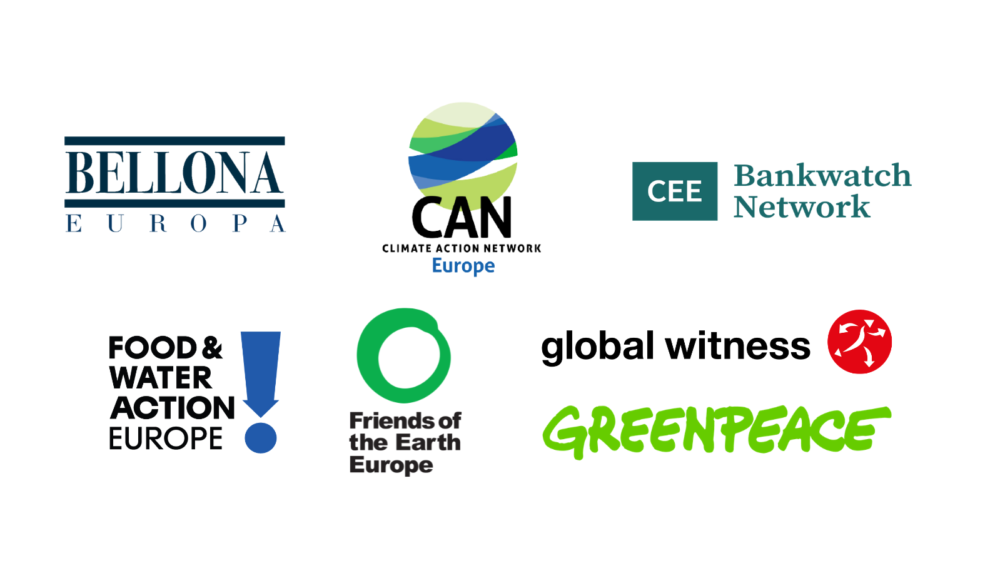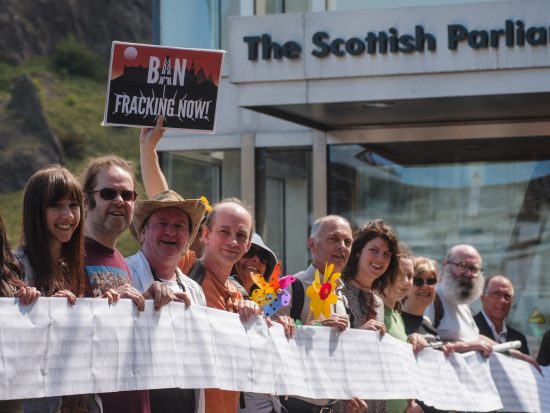
EU energy ministers will extend subsidies for fossil fuels – stranding EU’s climate objectives
Europe’s energy ministers have decided to extend subsidies for fossil gas in today’s approval of the Energy Council’s position for the revision of the energy infrastructure legislation (TEN-E) – a move highly criticised by climate groups and not in line with EU’s climate targets.
Despite its stated intent to stop funding fossil gas infrastructure, the Council’s TEN-E revision contains an extraordinary loophole. As climate organisations recently warned, this means that fossil gas pipelines could be retrofitted to transport an undefined mix of fossil gas and hydrogen, known as blending, over the next nine years Financial support from the EU however would stop in 2027.
Colin Roche, climate justice campaigner for Friends of the Earth Europe said:
“EU energy ministers decided to keep subsidising climate chaos with more needless gas infrastructure and to subsidize gas pipelines that mix in small amounts of hydrogen. We call on the European Parliament now to take a firm stand on TEN-E for a 100% renewable future.”
While 11 countries spoke out clearly against new gas projects, the final compromise was that pipelines and import terminals would carry a “blend” of these gasses. However, with no definition of what percentages of each gas could be transported and given the substantially higher costs of producing and transporting hydrogen, it is likely that fossil gas will continue to dominate new projects. Moreover there are no provisions for the blended hydrogen to be sourced from renewable hydrogen only.
Esther Bollendorff, Senior Gas Policy Advisor at CAN Europe said:
“Today, energy ministers decided to perpetuate climate-damaging fossil gas use. The nine year transition period during which existing gas infrastructure can be upgraded to carry hydrogen blends is totally at odds with an already well oversupplied European gas grid and the recent IEA Net Zero Report which gave a red card to fossil gas infrastructure extension. Today politics have not contributed to bringing the EU closer to the Paris Agreement goal to limit temperature increase to 1.5°C.”
Furthermore, the Council’s proposal also includes support for a new generation of energy infrastructure, which at first glance looks promising: transporting hydrogen and making existing infrastructure “smart”. But a closer look reveals a disappointing truth. The proposal would allow for projects that support fossil fuel infrastructure and so-called “smart gas grids” under the auspices of “low carbon” gasses. An undefined term that in reality includes a plurality of gasses regardless of their climate impact. If such projects are allowed, it would seriously undermine the EU’s ability to meet its climate objective to accomplish at least 55% net emission reductions by 2030 and climate neutrality by 2050.
The Council’s TEN-E revision also undermines the EU’s efforts to fight the climate emergency by continuing to support two large fossil gas infrastructure projects. On one hand, the EastMed project, an unabashed, €6 billion effort to provide the EU with a new source of fossil gas Europe cannot use. If operating at full capacity – 20 billion cubic metres of gas per year – the pipeline’s gas would, when burned, emit as much carbon dioxide as Europe’s current worst polluter, the Be?chatów coal-fired power plant in Poland. On the other hand, the Melita pipeline would keep Malta hooked on gas, with the capacity of transporting an immense 2 billion cubic metres of gas per year to a country with a population of only 500,000.
Frida Kieninger, Senior Campaigner at Food & Water Action Europe said:
“We are in a climate emergency. There is no room for new support for fossil gas infrastructure, without exception. It’s hard to see how either the EastMed and Melita pipelines fit into this crucial analysis It’s now down to MEPs to step in and bring a halt to more subsidies for fossil fuel projects – no exceptions, no loopholes.”
Lastly, fossil gas companies that profit from EU gas infrastructure policy and subsidies will continue to hold sway over key energy decisions. Despite some Member States concerns, under the Council’s proposal gas lobbyists – operating through the trade body ENTSOG – would have the power to forecast how much energy Europe needs and to assess and prioritise new infrastructure projects. Like suggestions made by the European Commission, the Council’s proposal continues to grant companies considerable influence rather than handing powers to an independent body which the climate NGO community have called for. Ultimately, the EU cannot wean itself from fossil fuels while this conflict of interest lies at the heart of its decisions on energy infrastructure policy.
Gligor Rade?i?, Gas Campaigner at Bankwatch said:
“The Council is again letting the fox guard the henhouse siding with fossil gas companies by proposing that they continue to define Europe’s gas policies. If the EU is serious about meeting its climate targets it must remove this conflict of interest, and start listening to science over profiteers of the crisis.”
The Council was badly divided in its decision, with multiple countries abstaining in protest, and “no” votes from Austria, Luxembourg, Germany and Spain, leaving the Council’s position weaker as the text now enters negotiations with the European Parliament. MEPs in the Energy Committee are due to vote on 15 July. The three-way negotiations, known as trilogues, between Commission, EU governments and MEPs could start immediately. Alternatively they may be delayed until after all MEPs have voted on the Parliament’s position in plenary, which is likely to take place in September.
Related Content
We think you’d also like:

Fossil Free Politics
Politicians should make climate laws to protect people – not please the fossil fuel industry. We need to cut fossil fuel interests out of our politics, similar to existing restrictions on the tobacco industry.

Gas
Stopping climate breakdown means keeping all fossil fuels in the ground – including gas. Governments and banks must stop financing gas pipelines and terminals which would lock us into a fossil-fuel future.






